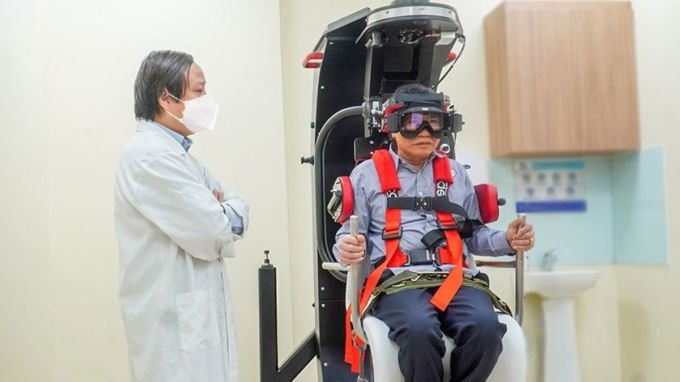
Post-Covid-19 dizziness and frequently asked questions 16
Doctor Le Minh Ky, Head of Ear, Nose and Throat Department, Tam Anh General Hospital, Hanoi, answers common questions about symptoms of dizziness in F0 patients recovering from the disease.
Why do I get dizzy after Covid-19?
Covid-19 affects the nervous system, causing neurological symptoms such as insomnia, depression, anxiety, and vestibular disorders, the most common of which is dizziness.
Vertigo is the feeling or illusion of movement of the body or surrounding objects when there is actually no movement.
Is it dangerous?
This depends on the location and extent of damage caused by the virus.
Some diseases such as vestibular neuritis (Ménière’s), benign paroxysmal positional vertigo (BPPV), labyrinthitis (bacterial infection in the inner ear), focal damage to the central vestibule,
After recovering from Covid, any time you have neurological abnormalities such as dizziness, loss of balance, tinnitus, or hearing loss, you should see a doctor.
How long does it last?
Symptoms of dizziness can occur at the same time as Covid-19 infection, or a few weeks after infection.
In many cases, they will go away when other symptoms of Covid-19 end.
Can it go away on its own?
Most mild dizziness caused by Covid will usually disappear on its own when other typical symptoms of Covid in the respiratory tract go away without any treatment.
People with vestibular disorders and Covid-19 will get worse?
Covid-19 has the ability to trigger vestibular conditions in people with BPPV, Ménière’s disease, vestibular neuritis… in remission or stable stages.
Some patients, after prolonged Covid treatment, using antiviral drugs, antibiotics and lying down for a long time, also have a decline in pre-existing vestibular function.
Doctor Ky guides patients through exercises to restore vestibular function.
How to reduce dizziness
During an acute attack: When there is an acute attack of dizziness, you need to limit movement and rest in bed.
Outside of an acute attack: After contracting Covid-19, when dizziness persists, you should do light activities such as walking, moving in place (turn your head, stand up/down frequently, stand and turn…).
It is necessary to distinguish acute vertigo due to disease of the functional vestibular system, which is not life-threatening, from acute vertigo due to cerebellar stroke, which can be life-threatening.



